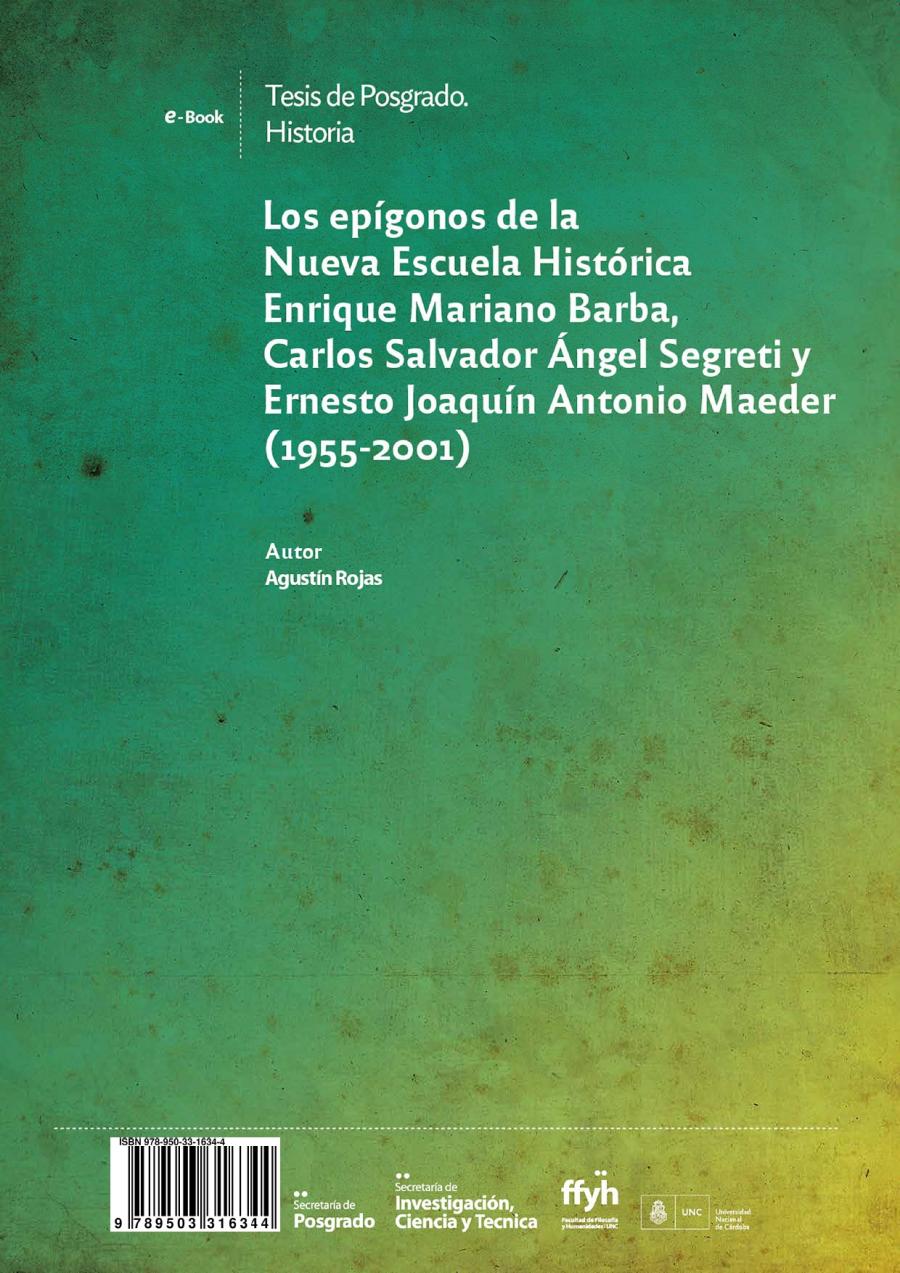The followers of the New Historical School Enrique Mariano Barba, Carlos Salvador Ángel Segreti, and Ernesto Joaquín Antonio Maeder 1955-2001
Keywords:
historiography - Argentina - 20th century, New Historical School (Argentina), Barba, Enrique Mariano, 1903-2001, Segreti, Carlos S. A., 1930-2005, Maeder; Ernesto J. A., 1931-2015, Argentine historians - biographies, history - methodology, Argentine history, historiographical schools, Argentine political history - 20th century, historiography - trends and debateSynopsis
The Epigones of the New Historical School: Mariano Enrique Barba, Carlos Salvador Ángel Segreti, and Ernesto Joaquín Antonio Maeder (1955–2001) is the result of five years of research on three key historians in Argentina. Trained in the mid-20th century in Buenos Aires and La Plata, under Americanist precepts and those of the so-called New Historical School, they formed part of a dense network of local and international circles with an affinity for traditionalist history.
The greatest challenge for today's “historiographers” is to break away from outdated conceptions restricted to the study of canons, “works,” and “great intellectuals” isolated from their contexts in order to promote, on the contrary, a diverse program open to interaction with the most vibrant dimensions of historical culture. That is why this work is based on a history of Argentine historiography in dialogue with intellectual history and the history of ideas. It covers a period that could be broadly defined as “post-Peronism,” including a long duration.
Conceiving of true communities of interpreters rather than isolated individuals helps to understand how science has been carried out in a country where, for many decades, the principle of science as an end in itself was the subject of corrosive criticism. By presenting its practices and political definitions simultaneously, it is possible to appreciate the conflictive intellectual scenarios in Argentina since the “Peronist event.”
The physiognomy of their métier easily stands out through their practices, intellectual circuits, and political choices. The vitality or decline of these professional and political trajectories, in short, is no different from the unstable course that Argentina suffered in a century assumed by many political traditions as a “national failure.” of young people.

Downloads
Published
Categories
License

This work is licensed under a Creative Commons Attribution-NonCommercial-ShareAlike 4.0 International License.


